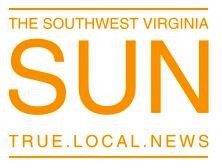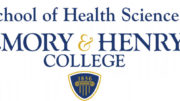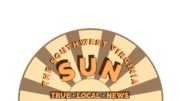Jacob Nelson’s parents owned and operated a hardware store in his hometown of Soddy-Daisy, Tennessee, but rather than follow their footsteps into the family business, he always felt driven to provide a different kind of service to the community.
Nelson once thought he might become a physician, but decided that he wanted a different type of interaction with patients. Today, the U.S. Navy veteran and the first in his family to attend college is a senior pursuing a Bachelor of Science in Nursing (BSN) degree at East Tennessee State University’s Sevierville campus.
“I want a more hands-on approach, which is why I’m going the nursing route,” Nelson said. “So far, I absolutely enjoy it. I’ve always needed a job that keeps me on my feet as opposed to a desk job. Caring for patients and keeping them at the center of care is what drew me in.”
Nelson is among a growing number of men entering the nursing profession. And although the nursing field has been female-dominated for many years, this trend reflects historical precedent going back thousands of years.
“Men dominated nursing, which started with monks, through the mid-19th century, when men started leaving for factory jobs as the world became more industrialized,” said Jake Terry Jr., clinical placement coordinator and faculty member in the ETSU College of Nursing. “Then along came Florence Nightingale, who is considered the ‘mother of modern nursing,’ and part of her agenda was to promote females into that role.
“Now it’s kind of switching back,” he continued. “The factory jobs, as you know, are not as plentiful due to technology and jobs going overseas. Now men are going back into the nursing field, and they’re finding stability. We are dramatically low on nurses now, and it is projected that we’ll need 2.1 million new nurses by 2030. And, it’s also due in part to the cultural change we’re going through. In the 1960s and ’70s, only 2% of nurses were male, and according to most current data, we’re up to 12%, so that’s multiplied 10 times over the past 40 years or so. In Tennessee, we’re at 11% – right at average – so that’s good for us.”
Terry says the presence of more male nurses, along with a greater emphasis on men’s health, is helping males to feel greater representation in the health care community. In addition, there are sensitive procedures which men might feel more comfortable having performed by a fellow male.
“But it goes either way – some men will prefer women – so it’s not a given,” Terry says. “We’re definitely always used for muscle, as well. The males and females work well together. It’s an awesome dynamic that is appreciated on both ends. If they need to lift someone, they holler at us. And we have patients who are combative sometimes; they may not be as combative with a male as with a female.”
Nelson, who hopes to eventually become a nurse anesthetist or nurse practitioner and possibly earn a doctorate in nursing, says he has noticed these factors in his clinicals. “There have been times when I’ve been the only male on the floor, and male patients have asked, ‘Can you get the male student to help me go to the toilet?’” he said. “I find the patients are appreciative that men are getting into the nursing field more than they used to.”
Efforts are underway at the local to national levels to help raise awareness and recruit more men into the nursing profession.
At ETSU, a new student organization – the Buccaneers Association of Men in Nursing (BAMN) – formed this fall to educate male ETSU students about the nursing field and recruit men into the profession. Nelson is the founding president of the organization, and Terry, who has worked with similar organizations at other institutions at which he has taught, is the faculty adviser. Co-vice presidents are D. Chase Sexton of Jacksboro and Anthony Baiamonte of Pigeon Forge, and Matthew Escobar of Knoxville serves as secretary/treasurer.
BAMN is open to undergraduate and graduate nursing students at all of ETSU’s campuses and practice sites in Tennessee, and membership is not exclusive to males.
“We have to have the support of our female counterparts,” Terry said. “We have five or six women members. I found in the past, when I’ve worked with these clubs, that there’s a lot of female support, and women will join every time.”
Terry and Nelson plan to eventually seek status for BAMN as a member chapter of the American Association for Men in Nursing (AAMN), which advocates for men in the profession at conferences and conventions around the nation. This would become the second collegiate chapter of AAMN in Tennessee, as the only current chapter to date is at Vanderbilt University.
The establishment of BAMN is in keeping with the ETSU College of Nursing’s longstanding practice of promoting men in the nursing profession. The college, Terry says, has several male faculty members, and actively reaches out to male students on recruitment visits to high schools and community colleges.
The rewards for males in the nursing profession, as for females, are many. While salaries vary according to many factors, such as specialty and location, the median salary for registered nurses in 2020 was $75,300, according to the U.S. Bureau of Labor Statistics (bls.gov/ooh/healthcare/registered-nurses.htm). And although nurses see patients and their families go through the pain and difficulty of illness, injury and death, the rewards of playing a critical role in their health care are priceless.
“My greatest satisfaction as a nurse is helping someone in their most dire time of need and to have someone say, ‘Thank you – you were an angel,’” Terry said. “That’s beyond words. There’s no compensation for that.”





